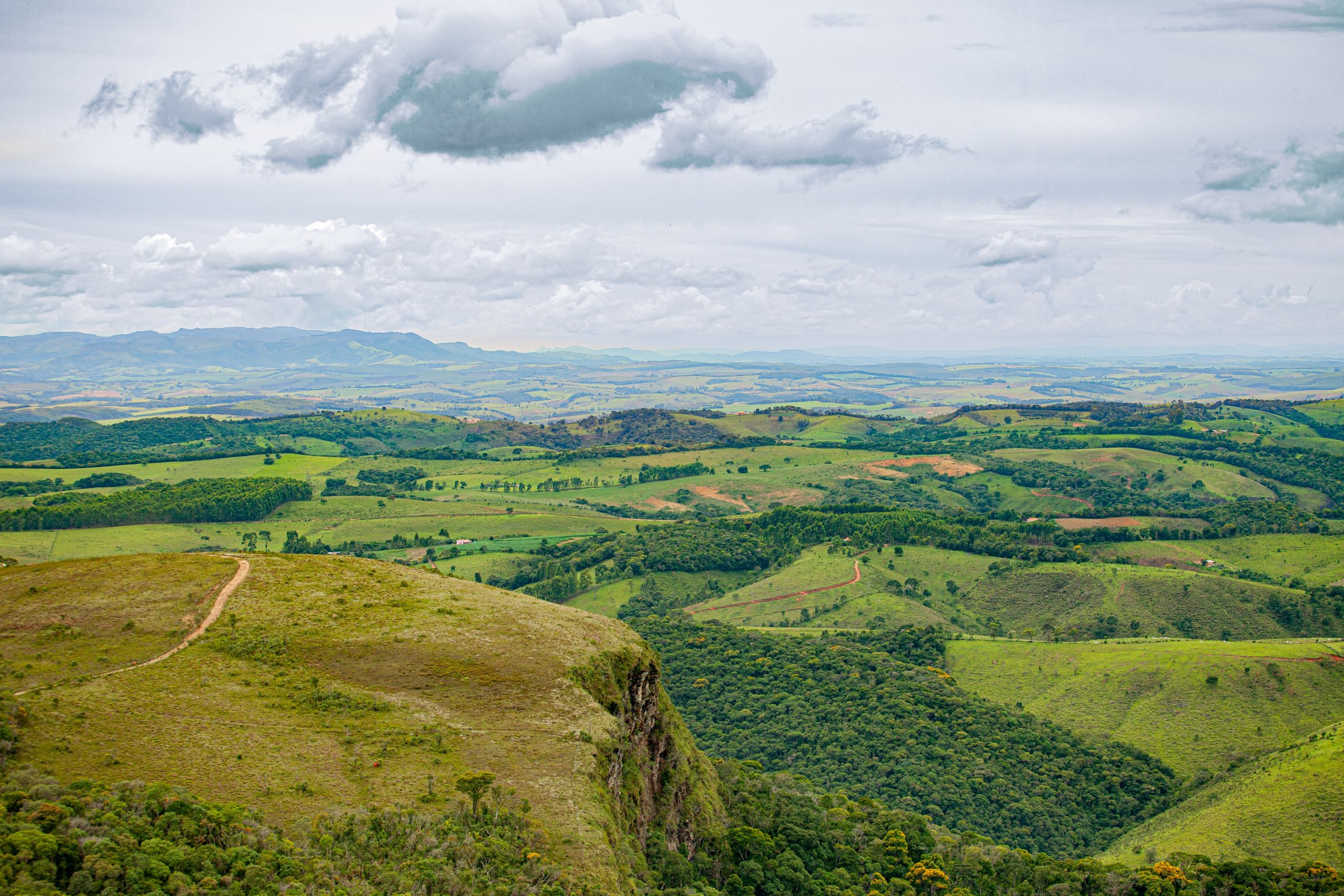The Hands-Down Best Guide on How to Buy Land in Sabah
The Complete Guide to Buying a Plot of Land in Sabah

The process of buying a piece of land is a challenging task with tedious procedures to follow through, but it is a worthwhile experience and investment.
You had to get it right from the start by defining your goal of purchasing land, which would allow the rest of the decisions to fall into place.
If you’re looking into buying a piece of land in Sabah, this article is for you. From determining your purpose up to register your name on the title, we've prepared a list of key steps to guide you on how to buy land in Sabah.

STEP 1
Identify your purpose of buying
Generally, you need to ask yourself the purpose of buying land and consider all possible future plans or development on that land. Are you going to use the land for farming, building a house, or renting it out? Identifying your purpose will help you to determine which category of land to purchase and develop a long-term management plan for it.
STEP 2
Look for suitable land
Where can I find land for sale?
A real estate agent can help you to locate suitable land and provide professional guidance. This will incur a commission fee of up to 3% of the sales price if the transaction is successful. Another way is to look up online platforms such as Property Hunter. You can search for a variety of lands and filter them based on your requirements and budget. Make sure to run preliminary inquiries and background checks to ensure the advertisement is legitimate.
https://www.propertyhunter.com.my
Understand the different types of land
Each category of land is governed by a unique set of rules or restrictions. In Sabah, there are few types of land:
- Country Lease (CL)
Land classified outside town area. Leases are freehold, 999, 99, or 60 years. - Town Lease (TL)
Generally the land classified within the town area. Leases are 99, 60 or 30 years. - Native Title (NT)
Designated for native ownership. Their practical bankable value for financing purposes are lower than other types of leases due to their restriction of dealing is only limited between natives. - Field Registrar (FR)
Land classified under NT. It is a temporary title which the land office has yet to issue the final title.
Anyone can buy country lease (CL) land, this includes individuals, foreigners, and companies. However, only the native people of Sabah can buy Native Title (NT) and Field Registrar (FR) land. This does not include companies and non-Sabahan Bumiputeras.
Each land has its own zoning or land use classification such as residential, agricultural, or commercial. Each zones are governed by its own permit.
- Residential
For development or use by residential property such as apartment or terrace houses. - Agriculture
For the development or use as agricultural land such as plantations. - Commercial
For development or use by commercial developments such as shopping malls, offices, or business premises. - Vacant
Land that is currently not registered for a specific purpose under residential, agricultural, or commercial use.
All NT land in Sabah is primarily for agricultural purposes. Hence, if you want to build a condominium on NT land, you must first convert it to CL land, then change the zoning from agricultural to residential. You are only allowed to build a condominium after completing the conversion. Premium levied by the Land Office will be involved whenever there is a conversion.
Land location
Frontal roads and proper development access are the minimum requirements for spotting a land location with good potential. Your future development will consequently be less expensive and have a higher cost-to-benefits ratio.
Land size
The size will determine the price of the land. The sizes commonly reflected in acres (1 acre = 43,560 sq ft) and you can use this information to compare with neighbouring land market price to size as a reference. Another thing to consider is that residential land is usually more costly than the others.
STEP 3
Do a title search
You can start doing a title search to investigate more about the land. Request a photocopy of the land title from the seller, as the Register of Deeds will require information such as the title number and the owner's name. Fill up a Title Search Request Form and request for a copy of the Land Title from Sabah Lands and Surveys Department. The Register of Deeds should be able to provide you a “Certified True Copy” of the title to ensure its authenticity.
Next, check whether there is any caveat, prohibitory order, or acquisition registered against the land title. On top of that, check for the tenure of the land and the lease expiry date. For future reference on extensions of tenure premium:
- Formulas for assessment of premium for lease renewal / extension of tenure in Sabah
- Formulas for premium assessment of conversion and subdivision of land titles in Sabah
You may also hire a professional and properly accredited land surveyor to do a land survey if needed. The land surveyor will conduct feasibility research or ecological tests on potential sites to evaluate whether the land is suitable for your intended purpose. Another advantage of having the land properly surveyed is getting them to mark the exact boundaries of the area; land title is often obsolete, and the terrain's borders have a tendency to change over time.
On top of that, you'll also need to budget for additional costs such as broker fees, valuation fee, land surveyor fee, legal fee, and stamp duty.
STEP 4
Financing
You may pay in cash if you have the means. Otherwise, bank loans are also available to help finance your purchase. Please keep in mind that the land type, tenure, borrower's ability, and other factors will all be considered in each financing. Each bank also has different packages and terms and conditions. Do inquire about their latest offers and terms before securing one.
STEP 5
Sign agreement with the landowner and payment
All relevant documents should be well-prepared and submitted to the respective agent and conveyancing lawyer before signing any documents or agreement. This will help the signing process go as smoothly as possible. The following documents are required for the purchase:
- Copies of both the purchaser's and seller's NRIC or Passport; and company forms (for company purchase)
- Original Land Title
- Sale and Purchase Agreement
- Sign Memorandum of Transfer upon the payment of the full purchase, which later needs to be sent to the stamp office for adjudication.
- As for NT land purchase, you will need additional documents like Birth Certificate, Sijil Anak Negeri, Surat Pengesahan from Hal Ehwal Department, and Surat Mahkamah Anak Negeri certifying you are native.
- Existing financier’s detail (if any)
Do note that for subsale cases, there will normally be a clause in the agreement indicating that the purchaser buys on 'as is, where is' basis. For this reason, it is important for you to inspect the condition of the property. Any unsatisfactory conditions or repair costs should be discussed prior to signing the SPA.
The seller and purchaser are responsible for notifying Lembaga Hasil Dalam Negeri about the purchase, and failure to do so may result in a penalty. Land Registry is not required to be notified, as you would need to present documents and original title to the Land Registry for transfer.
To transfer the property to the purchaser, the following necessary documents must be presented to the Land Administrator to enter the purchaser’s name into the Register Document of Title, which will be held in the strong room at the Registry. In Sabah, it will take a period of time to register your name in the title.
- Stamped Memorandum of Transfer
- The original Issue Document of Title
- Copies (certified) of the purchaser’s and seller’s NRIC or Passport
- OR Company Memorandum and Articles of Association
- Companies Commission of Malaysia (CCM) Company Search
- Company Resolution
- Return of Allotment of Shares – Form 24
- List of Register of Directors
- Managers and Secretaries – Form 49
- All fees necessary
- A copy of current Quit Rent and Assessment
Are you ready to move forward?
Remember, you put yourself at risk for buying fraudulent land without going through all of these procedures. Unethical individuals can fabricate a title and forge documents, selling you land that does not belong to them. Therefore, it is necessary to follow all proper procedures when it comes to acquiring land.
We hope you find the guide to be useful in your land purchase.

